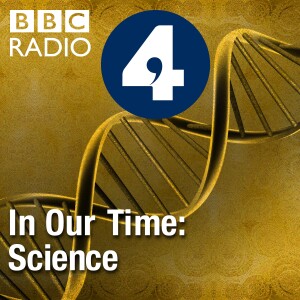
Melvyn Bragg and guests discuss role of Freudian analysis in understanding the great works of literature. Freud said, “The poets and philosophers before me discovered the unconscious. What I discovered was the scientific method by which the unconscious can be studied”. Psychoanalysis has always been more than a ‘talking cure’ and it has strong ties to literature, but one hundred years after the publication of the first great work of psychoanalysis, The Interpretation of Dreams, critics are putting the scientific basis of Freud’s work in grave doubt and he is in danger of being pitched in with poets. The great American critic Harold Bloom has said “Freud, the writer will survive the death of psychoanalysis”, and the analyst and writer Adam Phillips seems to go further in his new book Promises Promises where he writes, “I think of Freud as a romantic writer, and I read psychoanalysis as poetry, so I don’t have to worry whether it is true or even useful”.So what is the relationship of psychoanalysis to literature, and if it is to be reclassified as literature itself can it still be practised as a talking cure?With Adam Phillips, author of Promises Promises: Essays on Psychoanalysis and Literature; Malcolm Bowie, Marshal Foch Professor of French Literature, Oxford University; Lisa Appignanesi novelist and co-author of Freud’s Women.
view more
More Episodes
Cosmic Rays
 2013-05-16
2013-05-16
 14
14
 2013-05-16
2013-05-16
 14
14
Water
 2013-03-28
2013-03-28
 22
22
 2013-03-28
2013-03-28
 22
22
Absolute Zero
 2013-03-07
2013-03-07
 1
1
 2013-03-07
2013-03-07
 1
1
Pitt-Rivers
 2013-02-28
2013-02-28
 3
3
 2013-02-28
2013-02-28
 3
3
Comets
 2013-01-17
2013-01-17
 28
28
 2013-01-17
2013-01-17
 28
28
Crystallography
 2012-11-28
2012-11-28
 7
7
 2012-11-28
2012-11-28
 7
7
Fermat's Last Theorem
 2012-10-25
2012-10-25
 3
3
 2012-10-25
2012-10-25
 3
3
The Cell
 2012-09-13
2012-09-13
 8
8
 2012-09-13
2012-09-13
 8
8
Game Theory
 2012-05-10
2012-05-10
 23
23
 2012-05-10
2012-05-10
 23
23
Early Geology
 2012-04-12
2012-04-12
 18
18
 2012-04-12
2012-04-12
 18
18
The Measurement of Time
 2012-03-29
2012-03-29
 22
22
 2012-03-29
2012-03-29
 22
22
Conductors and Semiconductors
 2012-02-23
2012-02-23
 38
38
 2012-02-23
2012-02-23
 38
38
The Scientific Method
 2012-01-26
2012-01-26
 2
2
 2012-01-26
2012-01-26
 2
2
Macromolecules
 2011-12-29
2011-12-29
 4
4
 2011-12-29
2011-12-29
 4
4
The Hippocratic Oath
 2011-09-15
2011-09-15
 6
6
 2011-09-15
2011-09-15
 6
6
The Origins of Infectious Disease
 2011-06-08
2011-06-08
 11
11
 2011-06-08
2011-06-08
 11
11
The Neutrino
 2011-04-14
2011-04-14
 4
4
 2011-04-14
2011-04-14
 4
4
The Age of the Universe
 2011-03-03
2011-03-03
 48
48
 2011-03-03
2011-03-03
 48
48
The Nervous System
 2011-02-10
2011-02-10
 7
7
 2011-02-10
2011-02-10
 7
7
Random and Pseudorandom
 2011-01-13
2011-01-13
 9
9
 2011-01-13
2011-01-13
 9
9
012345678910111213141516171819
Create your
podcast in
minutes
- Full-featured podcast site
- Unlimited storage and bandwidth
- Comprehensive podcast stats
- Distribute to Apple Podcasts, Spotify, and more
- Make money with your podcast
It is Free
- Privacy Policy
- Cookie Policy
- Terms of Use
- Consent Preferences
- Copyright © 2015-2024 Podbean.com



